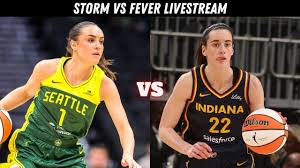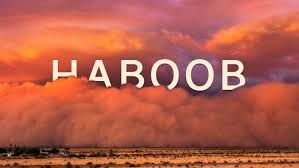1. A Triumphant Return to Los Angeles
Los Angeles is set to host the 2028 Olympic Games, officially scheduled from July 14 to July 30, 2028, followed by the Paralympic Games from August 15 to August 27, 2028
This marks the third time L.A. will welcome the global sporting spectacle, having previously hosted in 1932 and 1984, joining a very exclusive club alongside Paris and London.
2. Reimagining Ceremonies: Two Venues, One Opening
LA28 will make Olympic history with an unprecedented dual-venue opening ceremony at both SoFi Stadium and the Los Angeles Memorial Coliseum, a remarkable blend of modern and classic venues
- SoFi Stadium, home of the Rams and Chargers, will play a central role in the opening prologue.
- The Memorial Coliseum—already historic with its 1932 and 1984 Games pedigree—will continue the ceremony and host the closing event.
3. Venue Magic: No New Builds, Just Smart Reuse
In a groundbreaking move toward sustainability, LA28 will be the first Olympics in eight decades without building new permanent venues. Instead, the Games will use over 40 existing world-class stadiums and arenas across Los Angeles and surrounding regions.
Highlighted venues include:
- Dodger Stadium for baseball
- Venice Beach for triathlon
- Trestles Beach for surfing
- Universal Studios Lot for squash’ Olympic debut
- Belmont Shore and Port of L.A. for sailing, with Long Beach hosting many aquatic and coastal events .
Long Beach, particularly, stands out as the largest host city outside Los Angeles, handling 11 Olympic and 7 Paralympic events.
4. Schedule Highlights & Sporting Innovations
The thrilling Olympic action will unfold across 18 packed days, beginning just days after the Opening Ceremony and culminating in a spectacular Closing Ceremony at the Coliseum.
What’s new for LA28:
- Flag football, cricket, squash, lacrosse, baseball/softball make bold returns or Olympic debuts .
- Expanded events for equity: e.g., 3×3 basketball, women’s water polo, and boxing with a new weight class .
- With these additions, LA28 will become the first Olympics with more female than male athletes .
5. Urban Innovation: Car-Free Venues & Cultural Legacy
Los Angeles is embracing a bold new strategy: a ‘no-car’ Olympic experience, requiring attendees to rely on expanded public transit—bringing in 3,000 extra buses—to alleviate congestion and highlight sustainability
Beyond infrastructure, the cultural targeting is impressive. The LA County Department of Arts & Culture is collaborating with Paris counterparts to create a Cultural Olympiad, connecting arts, sport, youth, and civic engagement through programs before, during, and after the Games.
6. Resilience Amid Challenges
Despite recent wildfires affecting the L.A. region, Olympic venues have escaped unscathed. Still, ongoing recovery efforts may affect infrastructure rollout and strain city resources AP News.
With major upcoming events like the 2026 World Cup and Super Bowl 2027, LA organizers remain committed to ensuring that Olympic planning stays on track in the face of adversity.
7. Sports in Focus: Newcomers and Revivals
Cricket Returns
After a hiatus since 1900, cricket returns to the Olympics in Pomona with both men’s and women’s T20 tournaments—each featuring six teams and 180 athletes total Wikipedia.
Squash Makes Its Debut
Squash, long excluded despite multiple bids, will make its Olympic debut in 2028 at Universal Studios Lot, featuring 16 men and 16 women in single-elimination play Wikipedia.
Boxing Secures Inclusion
After governance struggles, boxing has been reinstated for LA28, with 14 events across genders and prelims at Peacock Theater, finals at Crypto.com Arena Wikipedia.
8. Athletic Inspiration & American Legacy
First women’s Olympic marathon winner Joan Benoit Samuelson hopes LA28 will rejuvenate American distance running, especially for young athletes who look to her 1984 victory as inspiration Reuters.
LA28’s focus on storytelling, community ties, and legacy efforts—including $160M invested in youth sport ties ahead of Paris and L.A. Games—signal a Games designed to impact beyond athletics LA 2028.
9. Efficiency, Intent, and the Future of the Olympic Movement
The IOC’s shift toward sustainability and cost-efficiency hinges on reusing venues and controlling budgets. However, the Oxford Olympics Study warns that Games remain notoriously prone to cost overruns, even with reuse strategies—spotlighting the need for smarter planning as LA28 approaches arXiv.
10. What Lies Ahead
As LA28 moves from vision to reality:
- Ceremonies will spotlight Hollywood creativity and Olympic pageantry.
- Fans will navigate a car-free experience supported by major transit expansion.
- New sports and equality gains continue advancing the Olympic agenda.
- Los Angeles stands poised to deliver a Games that blends legacy, innovation, and cultural resonance.
11. Athletes to Watch at LA28
Though the 2028 Olympics are still years away, some athletes are already positioning themselves as potential stars:
- Simone Biles – If she competes, she could cement her legacy as the most decorated gymnast in history.
- Sha’Carri Richardson – After her resurgence in track and field, many eyes will be on whether she dominates the 100m and 200m.
- Katie Ledecky – The swimming icon could extend her Olympic dominance into a remarkable fourth Games.
- Noah Lyles – America’s sprint king could headline the 100m and 200m with Bolt-like star power.
- Cricket stars – The sport’s Olympic return could spotlight Indian, Australian, and Caribbean superstars unfamiliar to traditional U.S. audiences.
- Youth athletes – With skateboarding, surfing, and breakdancing growing in popularity, Gen Z stars will continue reshaping the Olympic landscape.
12. Economic Impact on Los Angeles
Hosting an Olympics is as much about economics as sport.
- Projected cost: Around $6.9 billion, though some estimates may rise closer to $10 billion once infrastructure, security, and transport improvements are included.
- Revenue sources: Broadcasting rights, sponsorships, ticket sales, and tourism are expected to cover much of the cost.
- Jobs created: Tens of thousands of temporary and permanent jobs, from construction to hospitality and security.
- Local businesses: Restaurants, hotels, and retail shops will see a surge in global visitors.
Critics, however, warn of:
- Cost overruns – a historic issue with nearly every Olympics.
- Gentrification and housing strain – as rental prices rise near key venues.
- Public transit stress – despite expansion, L.A.’s car-dependent culture poses risks for congestion.
13. Ticketing and Fan Experience
LA28 organizers promise a fan-first ticketing system, designed to avoid price gouging and bots. Expected features include:
- Tiered pricing to allow affordability alongside premium packages.
- Mobile-first ticket distribution for security.
- Bundle passes for families and groups.
In addition, LA28 plans to make the Olympics more immersive for locals:
- Free fan zones across the city for giant screenings.
- Partnerships with Hollywood studios to create Olympic storytelling experiences.
- Cultural Olympiad events, blending music, art, and sport across Southern California.
14. Tourism Boost: Los Angeles on the Global Stage
The 2028 Olympics will likely be one of the most visited sporting events in U.S. history, drawing millions of spectators.
- Iconic landmarks: Expect events staged near Santa Monica Pier, Venice Beach, Griffith Observatory, and even Hollywood venues.
- California tourism: Many travelers will extend visits to Disneyland, San Diego, Las Vegas, and national parks.
- Global exposure: With 200+ nations participating, LA28 will be broadcast to billions worldwide, further cementing Los Angeles as a cultural and sporting capital.
15. Legacy of LA28
The true test of an Olympics is its post-Games impact. LA28’s legacy plans include:
- Sports investment – expanding youth programs across Los Angeles County, especially in underserved communities.
- Infrastructure upgrades – new transit lines, bus systems, and airport improvements will benefit residents long after the Games.
- Cultural impact – the Games are expected to highlight diversity, storytelling, and inclusivity in ways unique to Los Angeles.
- Sustainability model – by reusing venues, LA28 could set a precedent for future host cities to avoid costly, abandoned stadiums.
16. Media & Broadcasting
NBC holds exclusive U.S. rights to the Olympics through 2032, ensuring wall-to-wall coverage on TV and streaming. By 2028:
- Expect immersive viewing options via VR and AR technology.
- More personalized digital feeds, allowing fans to follow specific athletes or sports.
- Social media integration, with TikTok, Instagram, and emerging platforms central to Olympic storytelling.
17. Security and Global Context
Security will be a top priority, especially given:
- L.A.’s size and open venues.
- Rising concerns over cyberattacks, terrorism, and crowd control.
- Coordination with federal agencies like the Department of Homeland Security.
Additionally, LA28 will occur in a geopolitically charged era:
- U.S.–China relations may influence Olympic competition and diplomacy.
- Russia’s potential reinstatement or continued ban could shape team rosters.
- The Games may also highlight issues like climate change, gender equality, and inclusivity.
18. Why LA28 Matters Globally
The Olympics are more than sport—they’re a stage for human achievement, cultural pride, and global unity. LA28, specifically, will:
- Showcase American creativity through Hollywood-level ceremonies.
- Bring sports like cricket and flag football to new audiences.
- Cement Los Angeles as one of the most important Olympic cities in history.
In short, LA28 is not just about two weeks of competition—it’s about creating a lasting global legacy of innovation, equality, and inspiration.


